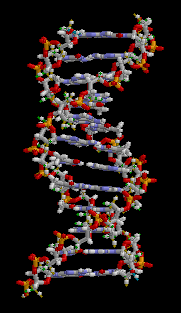Since scientists in the Human Genome Project successfully decoded the human genome, the literal blue print of human beings, in 2003, medicine has been looking to take advantage of this information to enhance people’s health. Nutritional genomics (or Nutrigenomics) is a new field of study based on the the Human Genome Project research, that looks at the relationships between our diet and our genes
One day it may be possible to have a genetic profile done to determine which diseases you are most likely to develop. Then you may also be given a prescription of dietary and lifestyle changes you need to make in order to maintain good health. There might even be a supplement list prescribed as well. One of the beauties of genetic testing is that almost every cell in your body contains your genetic code. A simple swab of the inside of your mouth can provide all the necessary material for testing. Pretty cool.
Can Nutritional Genomics Help You Lose Weight Too?
It’s very likely especially in cases of severe obesity. For people looking to lose a few pounds to get back into their “skinny” wardrobe, the answer may prove to be a bit more complicated. Why? Epigenetics is the answer.
Epigenetics is an even newer field of study than genetics. Epigenetics looks into the way environmental factors influence your genes. Without delving into the science, environmental factors play a huge role in influencing the way genes work. Apparently, you can even influence future generations through epigenetic effects.
Although this area of study is still in the experimental stages, science and technology are moving forward with lightning-fast speed. Nutritional genomics is something to watch out for in the coming years. With all the confusion out there about what you should eat, this new and exciting field of research might further illuminate what diet you should be following based on your individual genetic make up.






